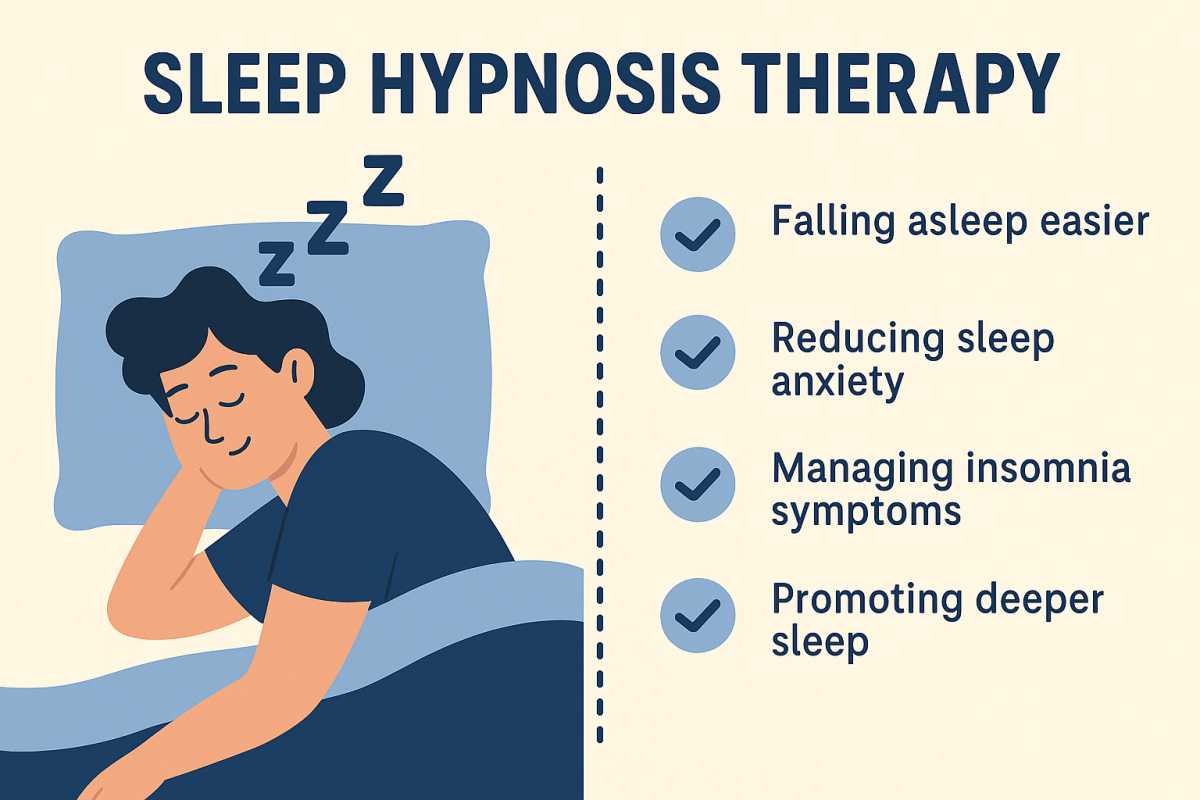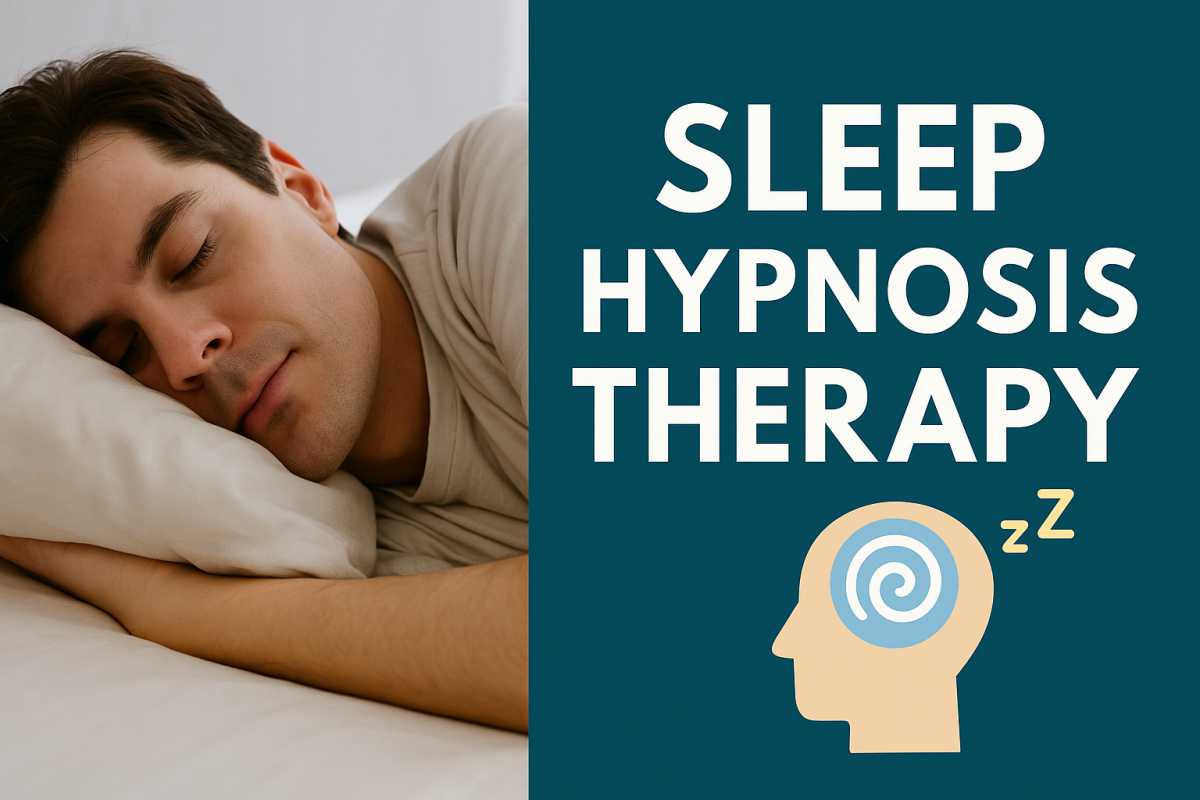Insomnia and restless nights are more common than many of us realize. For some, sleep difficulties appear only during stressful periods; for others, they can last months or even years. Sleep hypnosis therapy has emerged as a natural, non-invasive approach that addresses both the mind and body.
At its core, this therapy uses guided relaxation and focused attention to reach a state of heightened suggestibility. Unlike the myths often portrayed in movies, hypnosis is not about losing control. Instead, it allows individuals to bypass racing thoughts and access a calmer mental state that makes falling asleep easier.
How Sleep Hypnosis Therapy Works
Sessions often begin with breathing exercises and calming visualization. The therapist might encourage the person to imagine a peaceful environment—like walking on a quiet beach or resting under a tree. In this relaxed state, the subconscious mind becomes more open to positive suggestions, such as “you are safe to fall asleep” or “your body feels heavy and calm.”
Many people who experience this form of therapy report that the sessions feel deeply restorative, even if they don’t fall asleep immediately. Over time, the mind learns to associate hypnosis cues with sleep preparation, much like how a bedtime routine can signal the body to wind down.
Benefits Beyond Sleep
While the main goal of sleep hypnosis therapy is to improve rest, its effects often extend beyond nighttime hours. People who practice it regularly may notice:
-
Reduced anxiety and stress during the day
-
Improved focus and clarity in daily tasks
-
Fewer negative thought loops, which often interfere with rest
-
Greater consistency in sleep patterns
There’s also a growing body of evidence suggesting that hypnosis can help manage conditions such as chronic pain or mild depression, both of which can directly affect sleep quality.
Who Can Benefit From Sleep Hypnosis Therapy?
This approach may help a wide range of individuals, including:
-
Those who struggle with chronic insomnia
-
People experiencing stress-related sleep difficulties
-
Shift workers with irregular schedules
-
Individuals who prefer natural methods over medication
That said, sleep hypnosis is not a cure-all. Severe sleep disorders like sleep apnea still require medical intervention. However, as a complementary practice, hypnosis can fit neatly alongside lifestyle changes, sleep hygiene routines, and cognitive behavioral strategies.
What a Typical Session Looks Like
Most sessions last between 30 and 60 minutes. Some people choose in-person therapy, while others try audio recordings or online consultations. During the session, you’ll remain aware of your surroundings, but your attention will be more focused inward.
The therapist’s voice is the guide—offering relaxation cues, breathing techniques, and sleep-friendly affirmations. Over time, many patients begin to recreate the process themselves at home, turning the therapy into a skill they can rely on whenever needed.

Incorporating Sleep Hypnosis Into Daily Life
For the best results, sleep hypnosis should be combined with other healthy sleep practices:
-
Create a consistent bedtime routine.
-
Limit caffeine and heavy meals before bed.
-
Keep screens out of the bedroom.
-
Practice short relaxation exercises during the day.
By blending these habits with hypnosis sessions, the mind and body become conditioned to rest more naturally.
A Note on Safety and Professional Guidance
Sleep hypnosis therapy is considered safe for most people. Still, it works best when guided by trained professionals who understand both the technique and the individual’s needs. If you’re curious, consider consulting a licensed hypnotherapist or a sleep specialist for personalized advice. You can also explore reputable resources such as the American Academy of Sleep Medicine, which provides information on evidence-based sleep practices.
Final Thoughts
So, is sleep hypnosis therapy the solution for everyone? Not necessarily. But for many, it offers a gentle, accessible, and surprisingly effective way to retrain the mind toward healthier sleep. By reducing stress, quieting intrusive thoughts, and encouraging the body’s natural rhythm, it has helped countless people rediscover the joy of deep rest.
In the end, sleep hypnosis therapy is less about “magic words” and more about creating the right environment for the mind to release control. For those seeking restful nights without relying solely on medication, it may be exactly the support they’ve been searching for.
